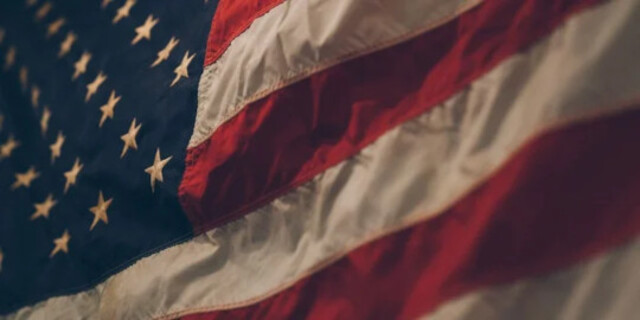
In a recent Quinnipiac University poll, most Americans expressed concerns about democracy being in danger of collapse. This marks a significant increase from previous surveys that indicated around half of Americans shared these worries. Citizens are increasingly uneasy about the potential erosion of democratic norms and institutions.
In 2020, the Knight Foundation and the University of Chicago interviewed over 10,000 eligible non-voters from the 2016 presidential election. Although these individuals represented a diverse group with various reasons for not voting, many felt that their vote didn't matter and that the system was rigged against them.
A 2014 study by Martin Gilens of Princeton University and Benjamin Page of Northwestern University analyzed data from over 200,000 public opinion surveys, revealing that the American government does not consistently represent its citizens' preferences. Instead, the study found that wealth and power often significantly impacted governmental policies more than the average citizen's views.
These findings are deeply troubling, implying that the American government may not be operating as a true democracy. The consequences of this situation could include a decline in trust in the government and a surge in political apathy.
What led us to this point?
Three Key Supreme Court Rulings
Three key Supreme Court rulings have significantly impacted the role of corporations and wealthy individuals in U.S. politics, resulting in increased influence and the potential for legal bribery. These rulings are:
Buckley v. Valeo (1976)
Before Justice Lewis Powell's retirement, a landmark decision challenged the constitutionality of the Federal Election Campaign Act (FECA) of 1971, which sought to limit campaign contributions and spending. The Supreme Court declared that restricting individual and organizational campaign contributions was constitutional, as it helped prevent corruption or the appearance thereof. However, the Court also found that limiting campaign expenditures by candidates and independent expenditures by individuals and groups violated the First Amendment's protection of free speech. This ruling paved the way for wealthy individuals and corporations to invest large sums in political campaigns and sway politicians.
First National Bank of Boston v. Bellotti (1978)
During Justice Lewis Powell's time on the Court, a decision was made addressing corporate political spending. The Supreme Court overturned a Massachusetts law that forbade corporations from using their funds to sway the outcome of ballot measures not directly related to their business interests. The Court maintained that corporations, like individuals, possess First Amendment rights to free speech, encompassing the right to support political communication financially. This ruling broadened the involvement of corporations in political campaigns and enabled them to contribute to political causes more directly.
Citizens United v. Federal Election Commission (2010)
This groundbreaking decision considerably increased the sway of corporations and affluent individuals in U.S. politics. The case revolved around a challenge to the Bipartisan Campaign Reform Act (BCRA) of 2002, which imposed restrictions on independent expenditures by corporations and unions during electoral campaigns. The Supreme Court determined that such limitations on independent political spending by corporations and labor unions infringed upon the First Amendment's free speech protections. As a result of this ruling, corporations and unions were granted the ability to invest unlimited funds in political campaigns through independent expenditures, giving rise to Super PACs (Political Action Committees) and dark money organizations capable of accepting and disbursing large sums of money to influence elections and politicians.
Who Are Politicians Accountable To?
A trio of Supreme Court decisions has paved the way for more significant influence by corporations and affluent individuals in U.S. politics. This has resulted in a system where politicians are more accountable to their financial supporters than to the people they represent. Detractors argue that this has given rise to legalized bribery, as elected officials often prioritize the interests of their wealthy benefactors over their constituents' needs.
The study's revelations indicate a pressing need for reform within the American political system. There are several avenues for achieving this, such as simplifying the voting process, curtailing the impact of money in politics, and enhancing government transparency and accountability.
Thus the Supreme Court ushered in the age of legal bribery of some members of Congress. And to save our democracy, we first must neuter the US Supreme Court.
About the Author
 Robert Jennings is the co-publisher of InnerSelf.com, a platform dedicated to empowering individuals and fostering a more connected, equitable world. A veteran of the U.S. Marine Corps and the U.S. Army, Robert draws on his diverse life experiences, from working in real estate and construction to building InnerSelf with his wife, Marie T. Russell, to bring a practical, grounded perspective to life’s challenges. Founded in 1996, InnerSelf.com shares insights to help people make informed, meaningful choices for themselves and the planet. More than 30 years later, InnerSelf continues to inspire clarity and empowerment.
Robert Jennings is the co-publisher of InnerSelf.com, a platform dedicated to empowering individuals and fostering a more connected, equitable world. A veteran of the U.S. Marine Corps and the U.S. Army, Robert draws on his diverse life experiences, from working in real estate and construction to building InnerSelf with his wife, Marie T. Russell, to bring a practical, grounded perspective to life’s challenges. Founded in 1996, InnerSelf.com shares insights to help people make informed, meaningful choices for themselves and the planet. More than 30 years later, InnerSelf continues to inspire clarity and empowerment.
Creative Commons 4.0
This article is licensed under a Creative Commons Attribution-Share Alike 4.0 License. Attribute the author Robert Jennings, InnerSelf.com. Link back to the article This article originally appeared on InnerSelf.com



